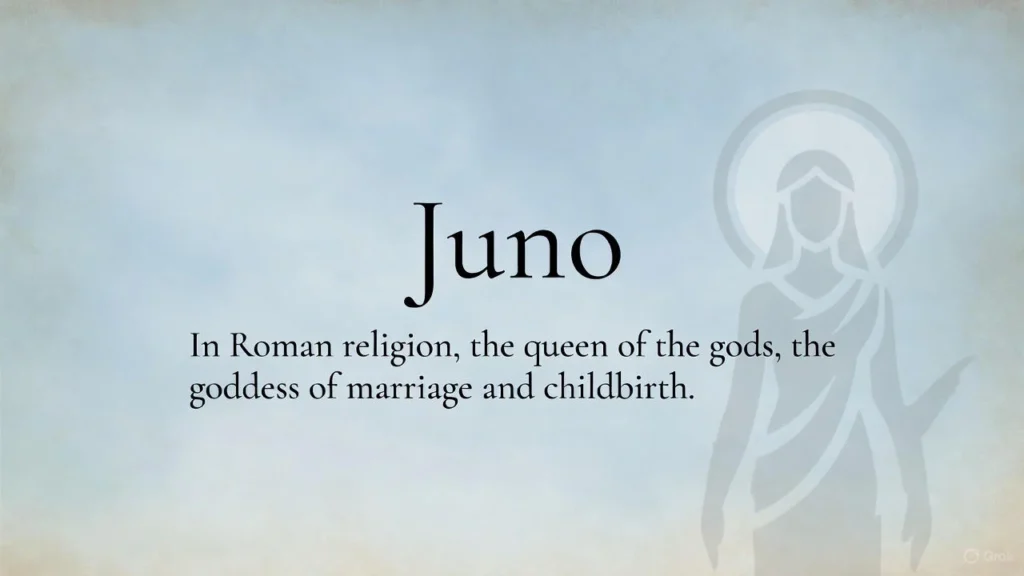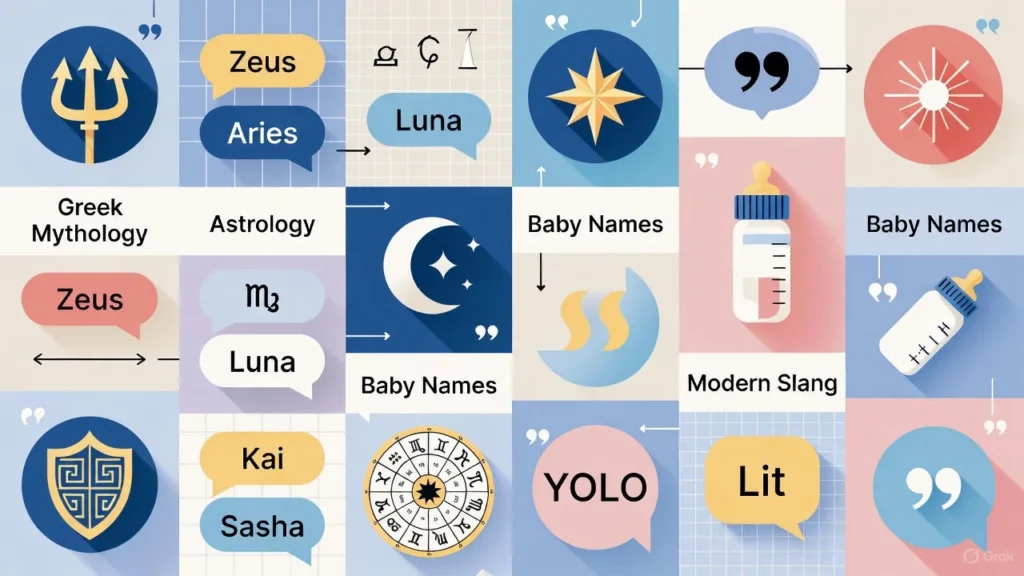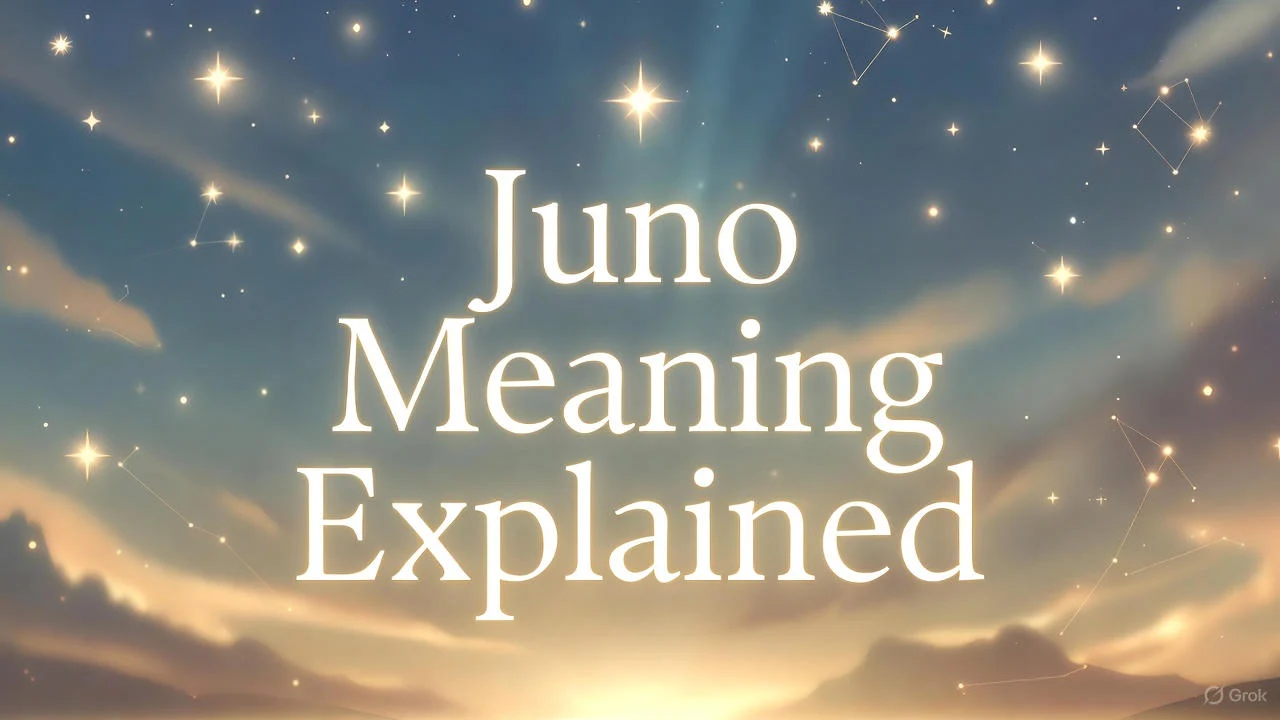Ever heard someone mention “Juno” in a movie, astrology chart, or baby name discussion and wondered what it actually means? 🤔
Although it sounds modern and stylish, “Juno” carries ancient power, deep symbolism, and multiple modern interpretations that people often miss.
From Roman mythology to relationship astrology to one of the most iconic indie films, “Juno” is a name loaded with identity, strength, and meaning—and its usage today is more widespread than ever.
This guide breaks down what Juno means, where it comes from, why it’s culturally important, and how people use it now.
Definition & Meaning

At its core, Juno refers to the Roman goddess of marriage, protection, and feminine power.
The word is widely associated with:
- Strength
- Protection
- Commitment
- Divine feminine authority
Depending on where you see it, Juno can mean:
- The Roman queen of the gods
- A symbolic name representing loyalty, power, and family
- An astrology placement linked to marriage and soul partnerships
- A modern personal name
- A pop-culture reference (film “Juno”)
Background & History

The meaning of Juno begins in ancient Roman mythology, where:
- She was the wife of Jupiter (Zeus in Greek mythology)
- She represented marriage, birth, protection, and womanhood
- She was considered the protector of the state and families
- Festivals like Matronalia honored her role in motherhood and femininity
Over time, the name Juno traveled through:
- Mythology
- Literature
- Renaissance art
- Astrology
- Modern naming culture
Today, it symbolizes strength, independence, and commitment—often chosen for both conceptual and aesthetic reasons.
Usage in Various Contexts

1. Mythology
Juno is a Roman goddess, similar to Hera in Greek mythology.
She represents:
- Marriage
- Protection
- Women
- Loyalty
- Birth
2. Astrology
In astrology, Juno is an asteroid associated with:
- Soulmates
- Marriage partners
- Long-term relationships
- Commitment dynamics
People often check their Juno sign to understand who they’re compatible with.
3. Names & Baby Naming
“Juno” is becoming a popular modern baby name, praised for being:
- Short
- Strong
- Feminine
- Mythological
- Unique
Parents choose it for its bold sound and empowering meaning.
4. Film & Pop Culture
The 2007 film “Juno”, starring Elliot Page, turned the name into a cultural icon.
The character embodies qualities associated with the name:
- Strong-willed
- Independent
- Clever
- Authentic
This boosted the name’s popularity globally.
5. Space Exploration
NASA’s Juno spacecraft (launched in 2011) was named after the goddess who could “see through clouds” — symbolizing:
- Discovery
- Truth
- Clarity
This added a futuristic layer to the name’s meaning.
Common Misconceptions & Clarifications

- Juno is not Greek — Hera is the Greek counterpart.
- Juno is not gender-neutral by origin, but many use it as unisex today.
- Juno is not limited to mythology — it’s widely used in astrology and naming.
- Juno in astrology doesn’t predict marriage, it reflects patterns and preferences.
Similar Terms & Alternatives

| Term / Name | Meaning | Similarity |
|---|---|---|
| Hera | Greek goddess of marriage | Very close |
| Venus | Goddess of love & beauty | Related |
| Athena | Goddess of wisdom | Strong symbolism |
| Luna | Means “moon” | Mythological vibe |
| Gaia | Earth mother | Nature & myth based |
| Nova | “New” or “star explosion” | Modern + cosmic |
How to Respond When Someone Mentions “Juno”

Depending on the context:
- Mythology: “Oh, like the Roman goddess?”
- Astrology: “What’s your Juno sign?”
- Baby Name: “That’s such a strong and unique name.”
- Film: “Do you mean the movie ‘Juno’?”
- Space: “The NASA mission?”
Regional or Cultural Differences

- In Western culture, Juno is strongly tied to mythology and pop culture.
- In astrology communities (global), the asteroid Juno is popular for relationship readings.
- In Europe & Latin America, the name Juno is trending as a modern baby name.
Comparison With Similar Concepts
Juno vs Hera
- Juno = Roman
- Hera = Greek
Same role, different culture.
Juno vs Venus
- Juno → marriage & loyalty
- Venus → love & attraction
Juno vs Aphrodite
- Juno = commitment
- Aphrodite = passion
Usage in Online Communities & Apps

Juno appears frequently in:
- Mythology forums
- Baby name groups
- Astrology TikTok & Instagram
- Relationship readings
- Fan culture for the movie “Juno”
- Space and science communities (NASA Juno mission)
Hidden or Sensitive Meanings

Juno has no offensive or inappropriate meaning, but confusion occurs when:
- People mix up Juno (Roman) with Hera (Greek)
- People assume Juno astrology means marriage predictions
- People mistake the name as only feminine (it’s now unisex in some cultures)
Suitability for Professional Communication

“Juno” as a name or reference is professional, artistic, and culturally rich.
It works well in:
- Academic writing
- Storytelling
- Branding
- Product names
- Creative industries
- Astrology/relationship content
FAQs
1. What does Juno mean?
It refers to the Roman goddess of marriage, commitment, and protection.
2. Is Juno a girl’s name?
Traditionally yes, but increasingly used as unisex.
3. What does Juno mean in astrology?
It represents soulmate energy, long-term relationships, and commitment patterns.
4. What is the Juno spacecraft?
A NASA mission sent to study Jupiter.
5. Is Juno the same as Hera?
Yes, they are counterparts from different mythologies.
Conclusion
“Juno” is more than a name—it’s a concept rooted in mythology, power, protection, and lasting commitment.
Today, it appears in astrology, space science, film, and modern naming, making it a beautifully versatile word with layers of meaning.
If you encounter it in a chart reading, a movie title, or a conversation about mythology, Juno symbolizes strength, clarity, feminine authority, and long-term connection—a timeless meaning that continues to evolve.




